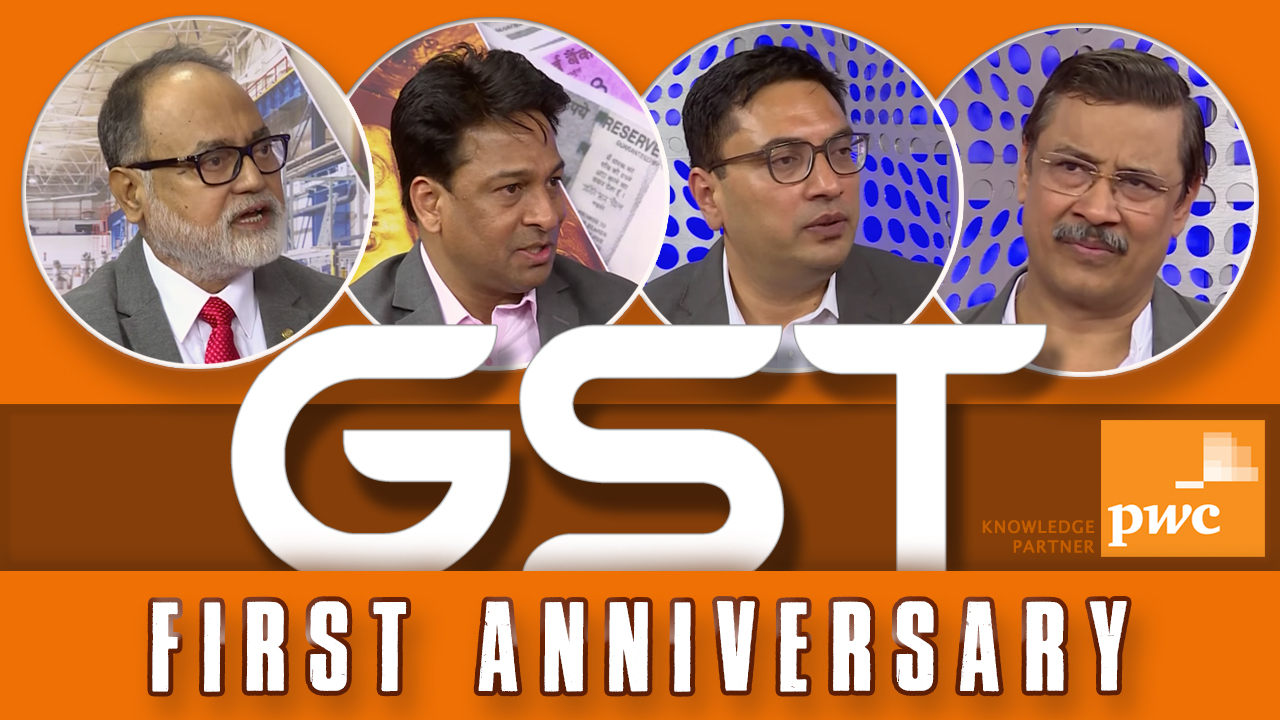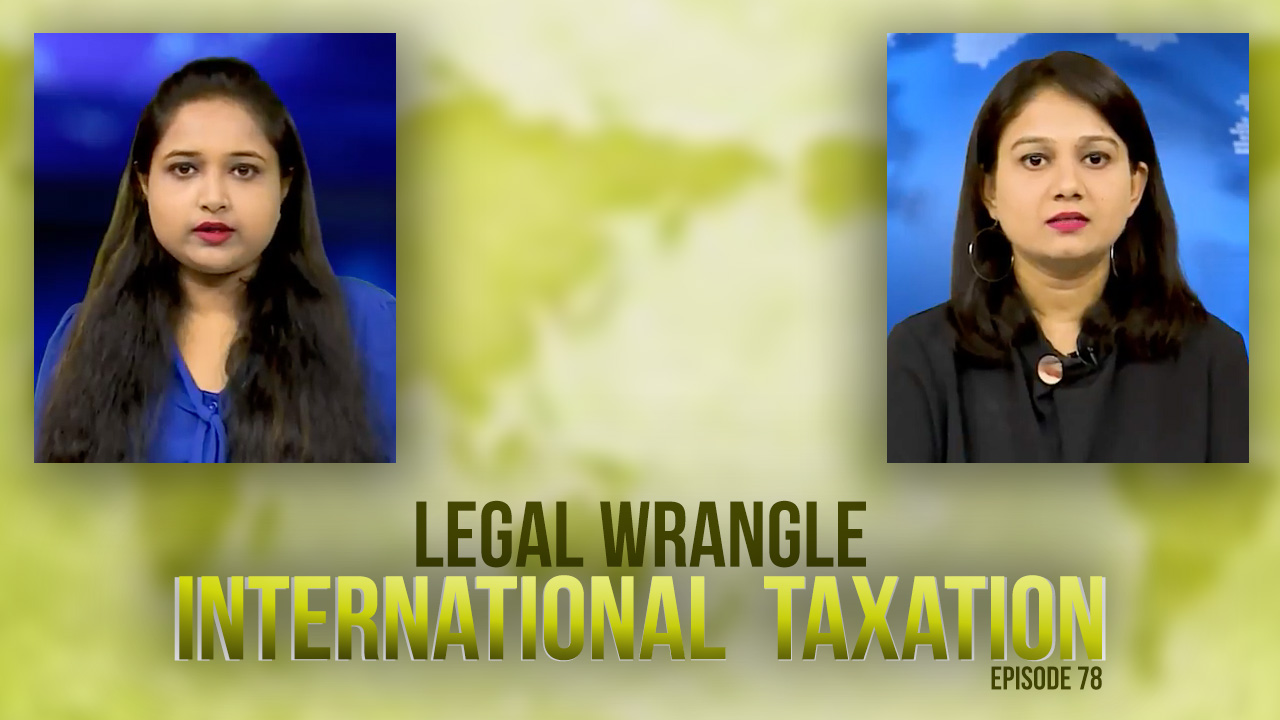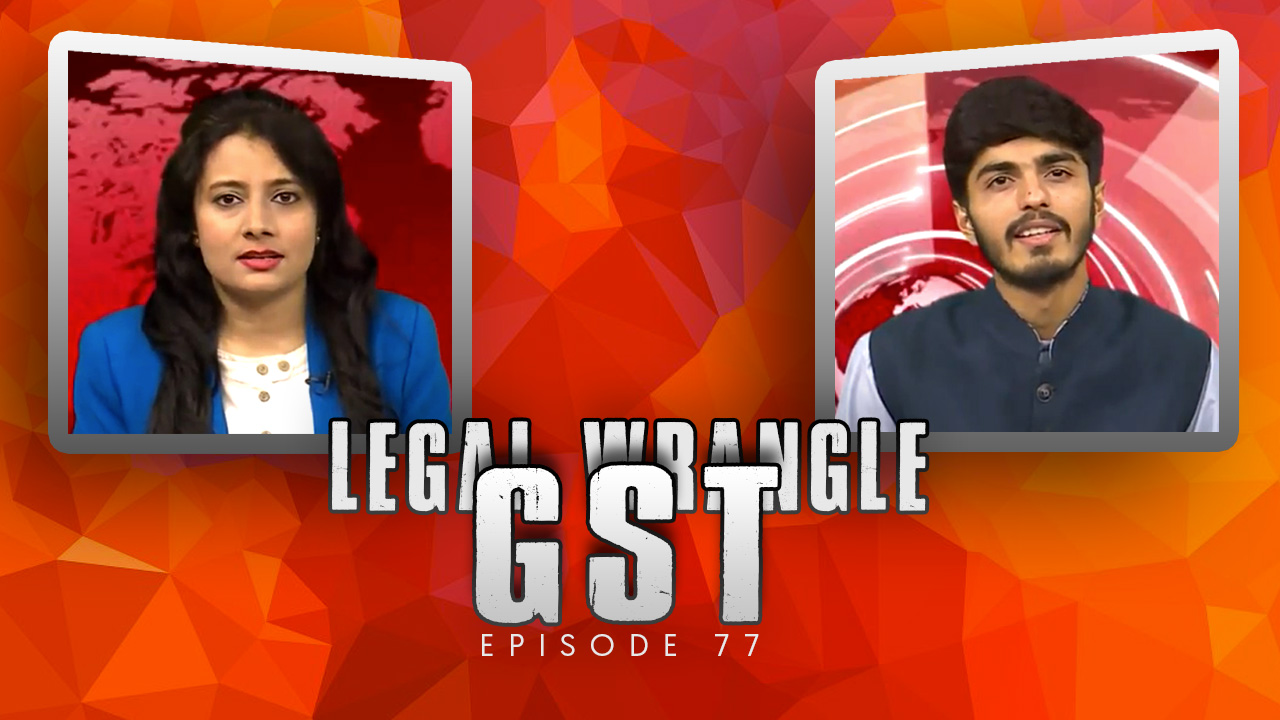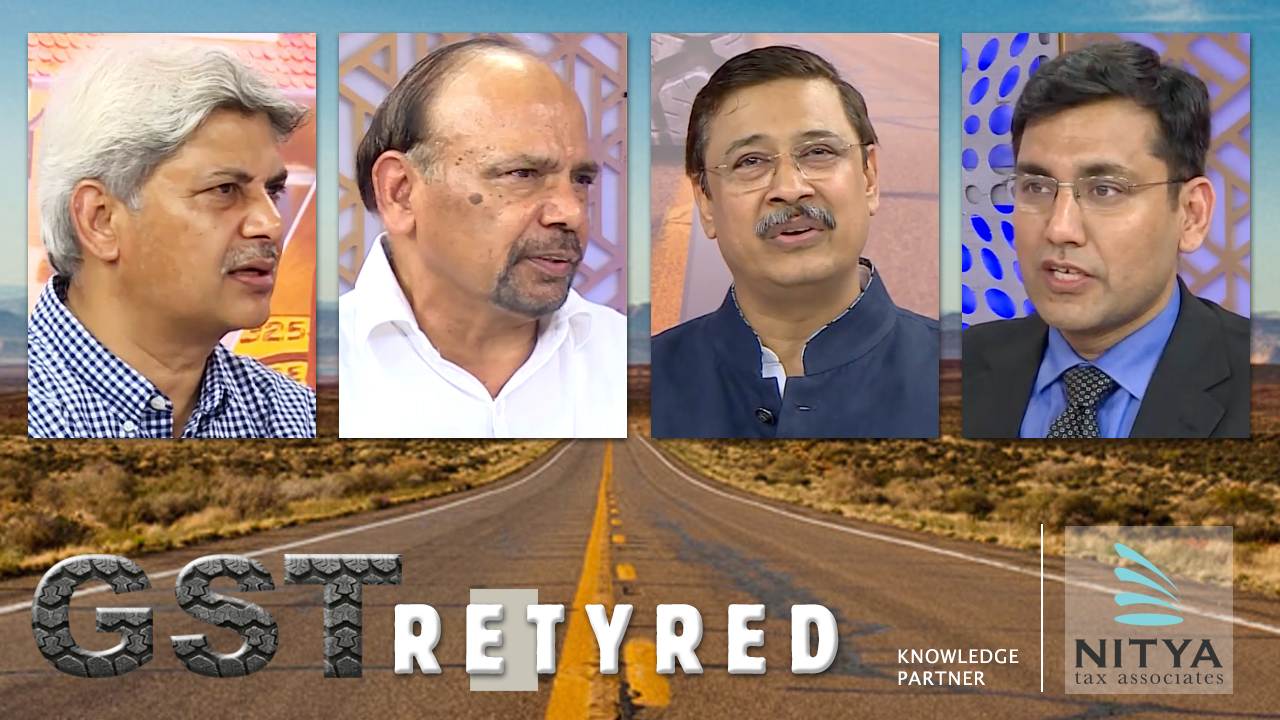|
SERVICE TAX
2018-TIOL-1240-HC-AHM-ST + Case Story
Essar Bulk Terminal Salaya Ltd Vs UoI
ST - Special provision for exemption in certain cases relating to construction of airport or port - Period of six months prescribed u/s 103(3) of FA, 1994 for claiming refund of service tax paid on construction of port cannot be extended: CESTAT has rightly rejected the refund claim - Petition dismissed: High Court [para 7.0]
ST - Refund - Right accrued in favour of the petitioner to claim the refund is u/s 103 of the FA, 1994 and, therefore, the limitation prescribed therein shall be applicable and not that provided u/s 11B of the CEA, 1944: High Court [para 6.8]
ST - Refund - Union Government was not under any obligation to provide the exemption retrospectively and that too with refund of the tax already paid - But for section 103 of the Finance Act, 1994 (inserted by the Finance Act, 2016) and the exemption being granted retrospectively, the petitioner could not have as a matter of right claimed such exemption and/or even consequently the refund of the tax paid - sub-section (3) of Section 103 of the Finance Act, 1994 cannot be said to be discriminatory and/or violative of Article 14 of the Constitution of India - No directions can be issued in exercise of powers under Article 226 which shall be contrary to the statutory provision: High Court [para 6.6]
ST - Refund - Being a policy decision, it is always open to impose certain conditions - Under the circumstances such a provision more particularly provision like sub-section (3) of section 103 of the Finance Act cannot be the subject matter of judicial review and the same cannot be declared as arbitrary, unconstitutional and/or ultra vires to Article 14 of the Constitution - being a policy decision culminated into statutory provision, the same is not subject to judicial review and therefore, the prayer of the petitioner to declare section 103(3) of the Finance Act, 1994 as unconstitutional deserves rejection: High Court [para 6.10, 7] - Petition dismissed :GUJARAT
HIGH COURT
2018-TIOL-2040-CESTAT-ALL
Z Square Shopping Mall Pvt Ltd Vs CCE & ST
ST- The assessee-company is engaged in construction of multiplex and shopping Malls - Revenue raised duty demand for alleged tax short paid on the activity of "renting of immovable property" - Further, input service credit was held to be inadmissible on grounds that input credit of service tax can be taken only if the output is a 'service' liable to service tax or are 'goods' liable to excise duty; since immovable property is neither 'service' nor 'goods', input credit cannot be taken - Duty demand was raised, hence the present appeal.
Held - With respect to short payment of service tax, part-payment of demand from their Cenvat credit account and by way of cash has been done - In addition, tenants of the assessee approached the Delhi HC challenging liability of service tax on the activity of "renting of immovable property" - Subsequently, following interim order of the SC in the tenant case, d 50% of the demand amount has been deposited as well - Therefore, there is no amount unpaid and tax is not short paid - With regard to credit on inputs, it is important to show that inputs have been used for providing 'output service' - The construction of mall by assessee became possible only upon utilizing inputs for construction & later rented the property to various vendors for sale of goods or servcies - Therefore, credit on inputs & input services will be available to the assessee - Following the ratio laid down by the Tribunal in the case of Oberoi Mall Ltd. vs. Commissioner of Service Tax, wherein the ruling of HC in the case of Commissioner vs. Sai Sahmita Storages Pvt. Ltd is followed - In addition, following the ratio laid down in the case of Mundra Port & SEZ Ltd. & Vandana Global which involves issue related to credit on input services - The order challenged is set aside: CESTAT (Para 2, 5, 7) - Appeal allowed : ALLAHABAD CESTAT
2018-TIOL-2039-CESTAT-DEL
Shree Mohangarh Construction Company Vs CCE
ST - Dispute is regarding various construction activities carried out by assessee - Out of total Service Tax demanded in SCN amounting to Rs. 61,01,025/-, Adjudicating Authority dropped the demand to the extent of about Rs. 34 lakhs and confirmed the balance amount - Assessee has challenged a part of Service tax confirmed against him - Main ground for challenge is that the SCN as proposed demand of Service tax under category of CICS whereas Adjudicating Authority has upheld such demands under category of WCS after analysing various activities in detail - It is fairly well settled position of law that Adjudicating Authority cannot travel beyond the allegation made in SCN - The Tribunal in case of Ashish Ramesh Dasarwar 2017-TIOL-3230-CESTAT-MUM has set aside the demand of service tax in a similar situation in which SCN proposed classification under CICS whereas the Adjudicating Authority upheld the demand of Service tax under WCS - In view of this, demand made under WCS is set aside - The other limb of dispute is regarding demand raised on amount received towards transportation and unloading of cement bags from Railway wagon - In impugned order, Adjudicating Authority has classified the services under Transport of Goods by Road Service whereas SCN had proposed classification of same under Cargo Handling Services - Nothing is forthcoming in record justifying the view taken by Adjudicating Authority to the effect that trucks which were used for transportation of goods were belonging to the service recipient - Consequently, finding of Adjudicating Authority set aside and matter remanded to the Adjudicating Authority for denovo decision on the subject - The assessee will be free to submit documentary evidence in support of their claim: CESTAT - Appeal partly allowed : DELHI CESTAT
CENTRAL EXCISE
2018-TIOL-2046-CESTAT-MUM + Case Story Jayashree Polymers Pvt Ltd Vs CCE & ST
CX - CENVAT - Rule 2(l) of CCR, 2004 - Input Service - There can be no justification for artificial bifurcation of the Insurance policy and allow the credit in respect of that part of the policy which is not for the personal consumption of the employee - in those cases covering period post 2011 where Tribunal had extended the benefit of CENVAT credit, Bench did not dwell on the phrase "primarily for the personal consumption of employee" and, therefore, cannot be relied upon - Since the insurance services in the present case are primarily meant for the personal consumption of the employees, they do not qualify to be input service under the definition of ‘Input service' as amended in 2011 by notification 3/2011-CX(NT) dated 01.03.2011 w.e.f 01.04.2011 - Credit rightly denied - Appeal dismissed: CESTAT [para 6, 9, 11, 12]
CX - CENVAT - Input Service - Rule 2(l) of CCR, 2004 - Limitation - True nature of insurance policies was never in knowledge of the departmental officers and came to light only when the unit was audited - The insurance services against which this credit has been taken definitely are within the exclusion clause and credit in respect of the same would have not been admissible - Further the fact that these insurance policies provided insurance cover to family members of the employees was also never disclosed to the department - Knowing the real nature of the insurance policy, appellants should have restrained themselves from taking the CENVAT Credit of the Service tax paid by them against the said policies - By taking such credit they have willfully suppressed the relevant facts knowingly to claim the CENVAT Credit not due to them - Hence, extended period of limitation is correctly invoked - Penalty rightly imposed u/r 15(2) of CCR, 2004 - Appeal dismissed: CESTAT [para 14, 15] -Appeal dismissed : MUMBAI CESTAT 2018-TIOL-2042-CESTAT-DEL
Seema Dhatu Udyog Vs CCE
CX - Assessee engaged in manufacture of aluminium ingots and wire parts of refined copper, whereas M/s Naveen Impex is an importer of aluminium scrap - On the basis of intelligence, factory premises of assessee as also the business premises of M/s Naveen Impex were put to search and verifications were conducted leading to seizure of some excess final products as also the raw materials in factory of assessee - Similarly, search in premises of M/s Naveen Impex resulted in recovery of cash of Rs. 34,65,000/- - The assessee's grievance is that in the absence of any evidence indicating any intention, on their part to remove the final product, without payment of duty, their confiscation and consequent redemption fine and imposition of penalty is not warranted - As regards the raw material, law is settled that same cannot be confiscated on the ground of their non-entry in records, especially when no Modvat credit stand availed in respect of such raw materials - As regards final product, there is nothing on record to suggest that non-entry of same in records was with a malafide intention - In such a scenario, confiscation of goods or imposition of penalties upon assessee was neither justified nor warranted, same is set aside - However, assessee would pay the duty in respect of said seized goods (if not already paid), at the time of their clearance.
As regards to appeal filed by M/s Naveen Impex, they were only the importer of aluminium scrap and non-entry of same in records does not justified the confiscation of goods, especially when no manufacturing activity was being undertaken by them - As such, imposition of redemption fine or penalty upon them is not justified, same is set aside.
As regards the cash recovered from premises of M/s Naveen Impex, Commissioner (A) has already given a detailed finding in respect of the same - Otherwise also, there was no allegation in SCN in respect of Indian currency being the sale proceeds of smuggled or clandestinely removed items - Further, order passed by Original Adjudicating Authority has released the cash after appropriation of redemption fine and penalties - Said part of order passed by Original Adjudicating Authority was not appealed against by Revenue and as such has attained finality - In such a scenario, further appeal by Revenue against order of Commissioner (A) sustaining the said part of order of Original Adjudicating Authority cannot be appreciated and the same is accordingly rejected: CESTAT - Assessee's appeals allowed : DELHI CESTAT
2018-TIOL-2041-CESTAT-ALL
Universal Engineers and Traders Vs CCE
CX - The assessee engaged in manufacturing of goods and functioning from plot which is belonging to father of Proprietor of assessee unit, Shri K. C. Gupta - On the same plot, Shri K. C. Gupta was also having a small scale unit, operating under the name and style of M/s Kailash Industries since 1994 engaged in business of manufacture/fabrication of electrical panels which is similar to the business of assessee - It appeared to Revenue that assessee is liable to pay Central Excise duty on turnover and/or clearances of M/s Kailash Industries and further in absence of declaration as required under Notfn 214/86–CE, assessee is not entitled to benefit of goods removed under job work without payment of duty - Assessee and M/s Kailash Industries had led sufficient evidence to the effect that the clubbing provisions are not applicable, as M/s Kailash Industries have got their own independent existence and have been engaged in manufacturing and clearing of goods even prior to establishment of assessee - It is evident that M/s Kailash Industries was set up in 1993–94 whereas the assessee had been set up during period 2001–04, when they started manufacturing and were registered with Central Excise Department - Further, clubbing of turnover of M/s Kailash Industries was also bad as M/s Kailash Industries was not to put to notice as to why their turnover should not be added to the turnover of assessee – Assessee is also entitled to benefit of exemption Notfn 83/94–CE, as amended as they have fabricated the panel boxes on job work basis for M/s Kailash Industries and said items is specified for SSI industry - Only for reason they have not filed declaration by Kailash Industries, their exemption cannot be denied as held by Tribunal in case of G.G. Automotive Gears Ltd. - Accordingly, impugned order set aside - Order of penalty under Rule 26 on M/s Kailash Industries is ab-initio void, as Shri K. C. Gupta- Proprietor had died before passing of the Adjudication Order: CESTAT - Appeal allowed : ALLAHABAD CESTAT
CUSTOMS
PUBLIC NOTICE
dgft18pn019
Amendment to Paragraph 2.74 and Paragraph 2.79A of the Handbook of Procedures of the Foreign Trade Policy (FTP) 2015-20
CASE LAWS
2018-TIOL-2038-CESTAT-MAD
Chandra Container Freight Station and Terminal Operators Vs CC
Cus - Department intercepted a consignment described as 'Industrial Salt? received by assessee for which no shipping bill had been filed; that the goods actually were 'Agricultural Grade Muriate of Potash? (MOP) and MOP is a restricted item as per para 2.7 of FTP and permitted only under licence - The goods were placed under seizure - There is no evidence that these assessees had colluded or conspired with exporter or their CHA in their attempt to export MOP under guise of Industrial Salt - Although the impugned cargo was intercepted on 24.07.09 by Customs authorities, only vide the Analytical Report dt. 3.8.09, the authorities did come to know conclusively that the goods were MOP - When the Customs authorities themselves were unsure about the nature of cargo and had to wait till the receipt of Analytical Report to confirm that it was MOP, it would be unfair to foist an allegation on CFS or their AGM that they were in the know of illicit nature of consignment, yet had allowed it to enter the CFS - This point is even more pertinent, when there is no allegation or evidence that these assessees were part of conspiracy along with exporters and that they were in any way aware ab initio that goods were in fact MOP brought into the CFS for wrongful export - Tribunal is then not able to find any shred of evidence that could lay open these assessees to a possible charge that they had abetted the doing or omission of acts by exporter or CHA to have rendered the goods liable for confiscation under Section 113 of Customs Act, 1962 - In any case, proposal to impose penalty under Section 114 ibid made out in the SCN is not on these required parameters but on the grounds that assessees have fallen foul of the Regulation 6 (g) of the Handling of Customs Cargo in Customs Areas Regulations, 2009 - Just because these regulations are issued under certain sections of the Customs Act, it does not mean that any violation of these regulations can be stretched to such extent as to bring that on par with a violation of Section 113 of the Act - In the event, penalties imposed on both these assessees cannot sustain: CESTAT - Appeals allowed : CHENNAI CESTAT
|
|










